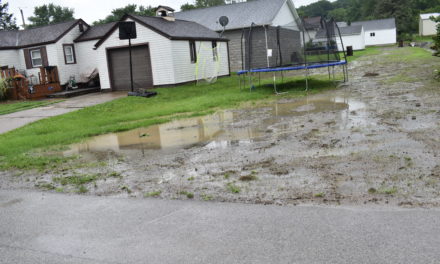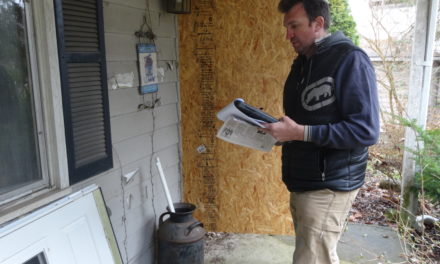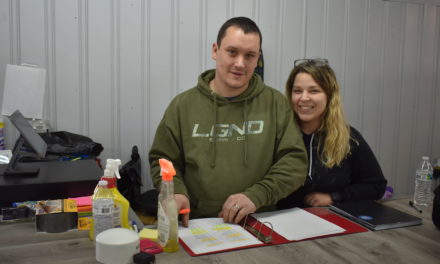EDITOR’S NOTE: This story was published in print before Brookfield Local Schools went all remote until at least Dec. 1.
“You take for granted that you’re living in the 21st Century, that people have access to things,” said Brookfield school Supt. Toby Gibson.
“But, that’s not necessarily the case,” he said.
Gibson found out when schools closed last spring because of the COVID-19 pandemic, and all schooling went online, that there were families in the township who do not have internet access. Spectrum offered short-term, free internet connections, but that only worked in areas where it already offered service. The offer was useless to students who live in Brookfield Acres mobile home park, because Spectrum’s service does not enter the park, he said.
South Obermiyer Road is another problem area. Internet access is not available through telephone lines, and cable lines do not run there.
“We live almost on a four-lane highway (Route 82) with no services – no water, no internet,” said resident Elaine Obermiyer.
 “They don’t even have natural gas back there,” said township Trustee Dan Suttles. “That’s almost like a little island right off of a state highway that has close to zero utilities.”
“They don’t even have natural gas back there,” said township Trustee Dan Suttles. “That’s almost like a little island right off of a state highway that has close to zero utilities.”
Internet connectivity has largely been left up to the private sector, which has meant zero service in some sparsely-populated areas, and slow service in some crowded areas.
“I keep hearing the people running for office saying everyone’s gonna get it, but that was three or four presidents ago,” Obermiyer said.
There are some things people can do, but they can be costly. Spectrum will run cable on South Obermiyer – if residents pay for the installation, a cost of more than $20,000, Obermiyer and Suttles said.
Obermiyer said she has a mobile hot spot from AT&T, but it has a data limit and she is hesitant to stream movies – something she really would like to do – preferring to save her data for business use; she’s a Mary Kay consultant.
“Right now, we’re getting along with that,” she said, adding that she knows some of her neighbors have other internet service providers that charge more than the $30 a month she pays for internet.
Gibson said the school is obligated to provide the resources students need to learn. So, when the school closed down, he had the school’s Wi-Fi antennas repositioned so students could use the parking lot as a Wi-Fi hot spot, and purchased mobile hot spots, portable devices that can be used for internet connections from student homes.
Although school is back in session, a student is only in the building two days a week – some students chose only remote learning – and internet connectivity remains an issue at least three days a week. The district had to move its Wi-Fi antennas to their original positions for in-school use, Gibson said.
The district received a $53,000 broadband connectivity grant and will use the money to upgrade the school equipment so the parking lot is again a Wi-Fi hot spot, and will create a second hot spot at Nicholas Field, the football stadium on Addison Road. Gibson said he did not know when the hot spots will be available. (As of Nov. 19, the work had not been completed, Gibson said.)
Gibson also is looking into whether he needs to buy more mobile hot spots, he said.
“Whatever we need to provide, we’ll try to get,” Gibson said.
Suttles said he examined whether the township could use CARES Act money to bolster internet access in the township, but concluded he cannot.
“It has to be for something short term, not long term,” he said.
Suttles said the issue is on the radar of state Rep. Michael O’Brien, and the Eastgate Regional Council of Governments has received a $132,500 grant to conduct a broadband study covering Trumbull, Ashtabula and Mahoning counties. The study will recommend projects to expand internet access, and explore ways to fund them, according to Eastgate.








